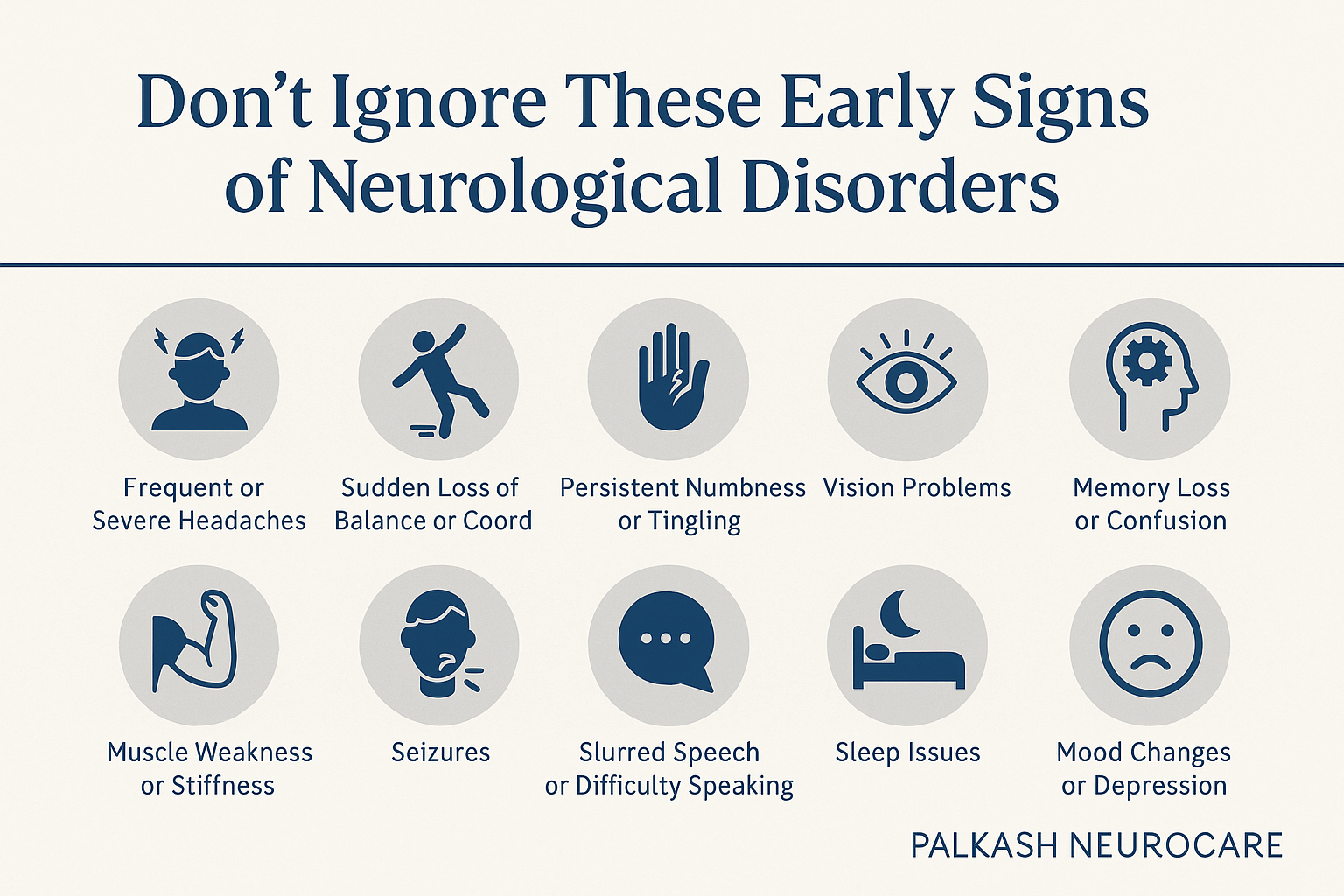Don’t Ignore These Early Signs of Neurological Disorders
Your nervous system is your body’s command center — controlling everything from thoughts and emotions to movement and memory. But when something goes wrong, the signs may be subtle and easy to dismiss. At Palkash Neurocare, we believe early detection is key to managing neurological conditions effectively.
Let’s explore the 10 early warning signs that should never be ignored.
🔍 1. Frequent or Severe Headaches
While headaches are common, recurring migraines, especially with nausea or visual disturbances, could signal neurological issues like migraines with aura or even tumors.
🔍 2. Sudden Loss of Balance or Coordination
If you feel dizzy, unsteady, or have frequent falls, it might indicate a problem with the cerebellum or inner ear — both part of the neurological system.
🔍 3. Persistent Numbness or Tingling
A tingling sensation in your hands, feet, or face can be a sign of nerve compression, diabetes-related neuropathy, or multiple sclerosis (MS).
🔍 4. Vision Problems
Blurred or double vision, especially if sudden, could indicate optic neuritis, stroke, or brain inflammation. It needs urgent evaluation.
🔍 5. Memory Loss or Confusion
Occasional forgetfulness is normal, but frequent memory lapses, difficulty focusing, or confusion could be early signs of dementia or Alzheimer’s disease.
🔍 6. Muscle Weakness or Stiffness
Unexplained weakness in one side of the body, especially in the arms or legs, could indicate stroke, Parkinson’s disease, or spinal nerve disorders.
🔍 7. Seizures
A sudden episode of shaking or loss of consciousness — even if it happens once — should be evaluated for epilepsy or brain injury.
🔍 8. Slurred Speech or Difficulty Speaking
Changes in speech can indicate stroke, brain tumor, or neurological damage. Seek emergency care if it happens suddenly.
🔍 9. Sleep Issues
Neurological conditions like Parkinson’s or restless leg syndrome can affect your sleep patterns, leading to poor rest and fatigue.
🔍 10. Mood Changes or Depression
Chronic anxiety, depression, or personality shifts may be linked to chemical imbalances in the brain or early-stage neurodegenerative diseases.
🧠 When to See a Neurologist?
If you experience any of these symptoms frequently or suddenly, it’s time to consult a neurologist. At Palkash Neurocare, we offer:
-
Expert evaluation
-
State-of-the-art diagnostics (EEG, EMG, MRI review)
-
Tailored treatment plans
-
Long-term follow-up and support

